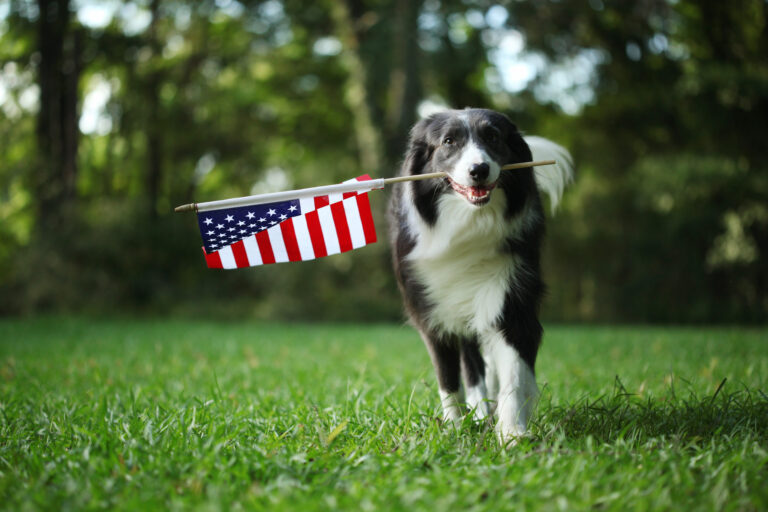Aging Gracefully Together: Ultimate Guide to Senior Dog Care
Explore expert tips on senior dog care, including nutrition, exercise, common health issues, mental stimulation, and quality of life considerations, to help your furry companion age gracefully and maintain a lifetime of love.
Introduction: Understanding the Needs of Senior Dogs
As dogs progress into their senior years, their well-being becomes a top priority for pet owners. It is essential to recognize that senior dogs , usually classified as 7 years or older, undergo a transformation that demands tailored care strategies to support their health and happiness. Acknowledging the distinct needs of aging dogs is fundamental in ensuring they navigate this stage of life with comfort and vitality.
The aging process in dogs brings about a range of adjustments, from physical limitations to cognitive changes, emphasizing the significance of proactive and attentive care. By comprehensively understanding the nuances of senior dog care, pet parents can implement appropriate measures to enhance the overall quality of life for their beloved companions. Engaging in practices that prioritize the well-being and longevity of senior dogs is a fulfilling endeavor that honors the enduring bond between pets and their human families.
 Importance of Proper Nutrition for Senior Dogs
Importance of Proper Nutrition for Senior Dogs
When it comes to senior dogs, proper nutrition is a crucial aspect that significantly impacts their health and quality of life. As dogs age, their bodies undergo various changes, including a slowed metabolism, which can make them more susceptible to weight gain and associated health issues. To address these specific needs, specialized senior dog foods have been developed to cater to the nutritional requirements of aging dogs. These foods are often enriched with antioxidants that support the immune system and help combat cell damage, promoting overall well-being.
Moreover, senior dogs with certain health conditions, such as arthritis or kidney disease, may benefit from prescription diets that are precisely tailored to their individual needs. These diets can play a vital role in managing specific health concerns and improving the overall health of senior dogs. By providing senior dogs with a balanced and appropriate diet, pet owners can contribute to their furry companions’ vitality and longevity, ensuring they lead healthy and fulfilling lives. Remember, a well-rounded and suitable diet is key to supporting the unique nutritional requirements of senior dogs.
Exercise Tips for Older Dogs
Exercise is a crucial aspect of senior dog care, playing a significant role in supporting their physical health and mental well-being. It is essential to consult with a veterinarian regularly to determine the most suitable type and intensity of exercise for each senior dog, taking into account their individual health status. For example, a senior dog with arthritis may benefit from gentle activities like short walks or hydrotherapy to help maintain mobility and manage joint pain effectively. By customizing exercise routines, pet owners can ensure that their senior dogs remain active and healthy while considering any age-related conditions they may be experiencing.
In addition to physical exercise, mental stimulation is equally important for senior dogs. Engaging in activities that challenge their cognitive abilities can help keep their minds sharp and prevent mental decline. For instance, interactive games like puzzle toys or hiding treats can provide mental enrichment, stimulating their problem-solving skills and enhancing their overall well-being. By incorporating a combination of physical exercise and mental activities tailored to the specific needs of senior dogs, pet owners can ensure that their furry companions age gracefully and enjoy an excellent quality of life.
To explore more ways to keep your senior dog active and engaged, consider seeking guidance from professional dog training services like Off Leash K9 Training. Visit their website at Off Leash K9 Training’s Website for expert advice on optimizing your senior dog’s exercise routine and mental stimulation regimen.
Common Health Issues in Aging Dogs
As dogs age, they become more vulnerable to a range of health issues that can significantly impact their overall well-being. One common concern for senior dogs is dental disease, which can cause pain, infection, and even systemic health problems if not addressed promptly. For instance, untreated dental issues can lead to discomfort while eating, affecting the dog’s nutrition and overall quality of life. Therefore, regular dental check-ups and proper oral hygiene are essential for maintaining a senior dog’s health.
Additionally, arthritis is a prevalent condition in aging dogs, characterized by joint pain and stiffness that can hinder mobility and daily activities. To alleviate the discomfort associated with arthritis, veterinarians may recommend various treatment options such as medication, physical therapy, or weight management strategies. By proactively managing arthritis in senior dogs, pet owners can help their furry companions maintain an active and comfortable lifestyle. It’s crucial for pet owners to be vigilant for signs of arthritis, such as reluctance to move or difficulty standing up, and seek veterinary care at the earliest indication of an issue.
 Mental Stimulation and Enrichment for Senior Dogs
Mental Stimulation and Enrichment for Senior Dogs
Ensuring mental stimulation and enrichment for senior dogs is crucial in maintaining their cognitive abilities and enhancing their quality of life. For example, scent work activities like hiding treats around the house can engage a senior dog’s sense of smell, providing mental exercise and satisfaction when they successfully locate the hidden treats. This not only stimulates their cognitive function but also taps into their natural instincts, offering a rewarding and mentally enriching experience.
Moreover, interactive puzzle toys tailored for senior dogs can be a valuable tool in keeping their minds sharp and active. These toys often require problem-solving skills and offer mental challenges that can help alleviate cognitive decline in aging dogs. By regularly engaging with such toys, senior dogs can stay mentally alert, prevent boredom, and enjoy a sense of accomplishment when solving the puzzles, contributing to their overall well-being.
Additionally, social interactions are essential for the mental health of senior dogs. Whether it’s spending time with other canine companions at a dog park or interacting with familiar humans during daily walks, social engagement can ward off feelings of loneliness and provide mental stimulation. These interactions not only prevent isolation but also contribute to the emotional fulfillment and happiness of senior dogs, fostering a sense of connection and belonging in their golden years.
 Quality of Life Considerations for Senior Dogs
Quality of Life Considerations for Senior Dogs
When it comes to enhancing the quality of life for senior dogs, there are several key considerations to keep in mind. One way to improve their comfort is by providing soft bedding throughout the house. Soft bedding can help cushion their joints, providing relief for any arthritis or mobility issues they may experience as they age. Additionally, elevated food and water bowls can be beneficial for senior dogs, as they reduce the strain on their necks and backs while eating and drinking, promoting better posture and comfort during meal times.
Moreover, incorporating ramps or steps in your home can greatly assist senior dogs in navigating their living space. These additions offer support for aging joints, making it easier for your furry companion to access elevated surfaces like beds or couches without putting unnecessary strain on their bodies. By ensuring that your home is senior-dog-friendly with these modifications, you create a safer and more accessible environment that promotes independence and reduces the risk of accidents or injuries. Lastly, maintaining a consistent routine and environment is crucial for senior dogs. Predictability and stability can help alleviate anxiety and confusion in older dogs, fostering a sense of security and well-being. Providing a familiar and structured daily routine can greatly contribute to their mental and emotional health, enhancing their overall quality of life as they age gracefully.
Additional Care Tips and Resources for Senior Dog Owners
Apart from focusing on nutrition, exercise, and mental stimulation, senior dog owners have access to various additional care tips and resources that can further support their aging pets. For instance, senior dogs can greatly benefit from incorporating joint supplements like glucosamine and chondroitin into their daily routine. These supplements are known to support mobility and joint health, which are crucial aspects of maintaining a senior dog’s quality of life as they age.
Furthermore, regular grooming sessions play a vital role in the well-being of senior dogs. Grooming not only helps them feel comfortable but also aids in preventing potential skin issues that may arise from matting or inadequate hygiene practices. By keeping their coat clean and well-maintained, senior dogs can stay healthy and happy throughout their golden years.
Additionally, seeking out specialized training programs tailored for senior dogs can have a significant impact on their overall health and happiness. Programs like the ones offered by Off Leash K9 Training are designed to enhance obedience, mental sharpness, and general well-being for aging canine companions. These training sessions are not only beneficial for the dogs but also foster a stronger bond between the pet and their owner, resulting in a more fulfilling and enriched relationship.
For expert guidance on caring for your senior dog and to explore advanced training services, visit Off Leash K9 Training’s website at Off Leash K9 Training’s Website.




